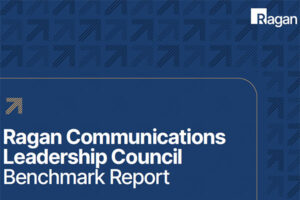The communicator’s superpower: A better way to capture the voice of the employee
A look at how artificial intelligence can help communicators learn more about employee behavior and conversations.

As an internal communicator, you have a secret weapon at your fingertips—and you might not even realize it.
From Teams to Slack, Zoom and Workplace from Facebook, you likely use one or more of these platforms every day. Organizations across the globe turn to these corporate messaging platforms to support employee collaboration and strategic company communications in a largely remote workforce. Just last October, Microsoft announced it had reached 115 million daily active Microsoft Teams users, a whopping 475% increase from just shy of a year earlier.
In reality, most organizations use more than one platform for communication, especially in major enterprise organizations with varying needs and styles of working. Microsoft’s own customer research shows that Workplace from Facebook is one of the most used apps, particularly in large organizations.
These tools are great for sharing important announcements and fostering employee engagement, but did you know you can also gain deep, valuable insights about your organization? You alone hold the keys to using these platforms to capture the voice of the employee and understand employee sentiment.
Surveys aren’t enough to capture the voice of the employee
Voice of the Employee (VoE) collects employee needs, ideas, grievances and suggestions for your company. Proactive leaders use VoE insights to improve employee experience and culture, boost productivity and raise critical concerns. Capturing the Voice of the Employee often happens via surveys, focus groups and other interviews.
Traditionally, organizations relied on an annual or bi-annual employee engagement survey to understand culture and employee sentiment. However, this data isn’t available quickly enough to take meaningful action and only reflects how employees felt during a single point in time. Furthermore, these surveys are often tied to incentive or bonus compensation. As a result, many organizations turn to additional methods to augment this survey.
One such method includes posting more frequent, brief surveys—or even leveraging a survey bot—within your company’s internal communication platform. Forbes reports that pulse surveys are a more accurate representation of employee sentiment and perception because once-a-year surveys lose relevancy as time goes on. Additionally, Gartner analysts suggest that by 2023, 80% of enterprises with more than 2,500 employees will augment annual engagement surveys with pulse surveys or indirect methods to gauge worker sentiment.
While pulse surveys certainly help glean more insight into the VoE, the results aren’t without biases. Response rates for pulse surveys may vary (some employees may not trust the survey is anonymous), the question might not elicit an honest answer and the topic itself might not address employee concerns. What if the individuals who did not respond were the unhappy employees? What if you weren’t even asking the right question? What if there is more to the story?
As a result, annual surveys and pulse surveys still don’t offer a true, authentic representation of how employees feel. Fortunately, there’s another, more accurate and timely way to attain an authentic view of employee sentiment and trending workplace topics.
Your secret weapon: Using artificial intelligence to understand the voice of the employee
When you layer an artificial intelligence solution on your communication platforms, you can learn a lot about employee behavior and conversations, in real time. Artificial intelligence software can surface commonly discussed themes or topics, as well as the associated sentiment. Harness this knowledge of what employees care about—and how they feel—to help leaders effectively address topics or make organization-wide changes.
The power of conversation insights goes beyond just surfacing trends or sentiment. As internal communicators, you know how quickly a conversation can change tone, especially within private chat messages. When you use an AI-infused insights software, like Aware, you can quickly and easily spot pockets of unrest happening in conversations across your various communication platforms. This allows you to proactively respond before a conversation spirals out of control.
This is your superpower—the ability to truly discover, in real-time, what employees care about and understand how it affects the broader organization. As a communicator, you are uniquely equipped to share this knowledge with leaders, help them make more informed decisions and guide them to make (and communicate) change in a way that best resonates with your employees.
Don’t forget that with great power comes great responsibility. Use your superpower to help your leaders in your organization better understand and support employees—they’re depending on you.
Betsy Sewell is the head of product marketing at Aware. Learn more about how Aware can help you use the power of AI to capture the Voice of the Employee and better support your workforce here.
This article is in partnership with Aware.






